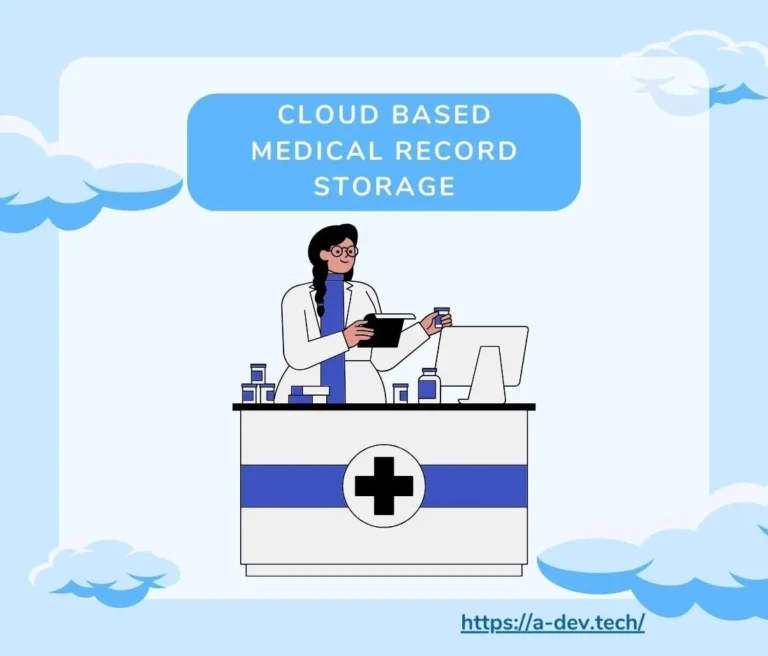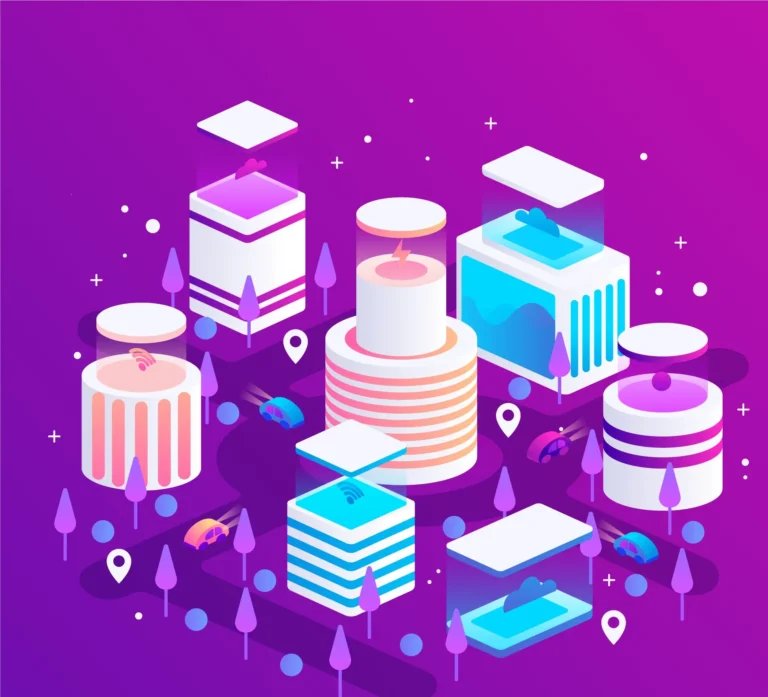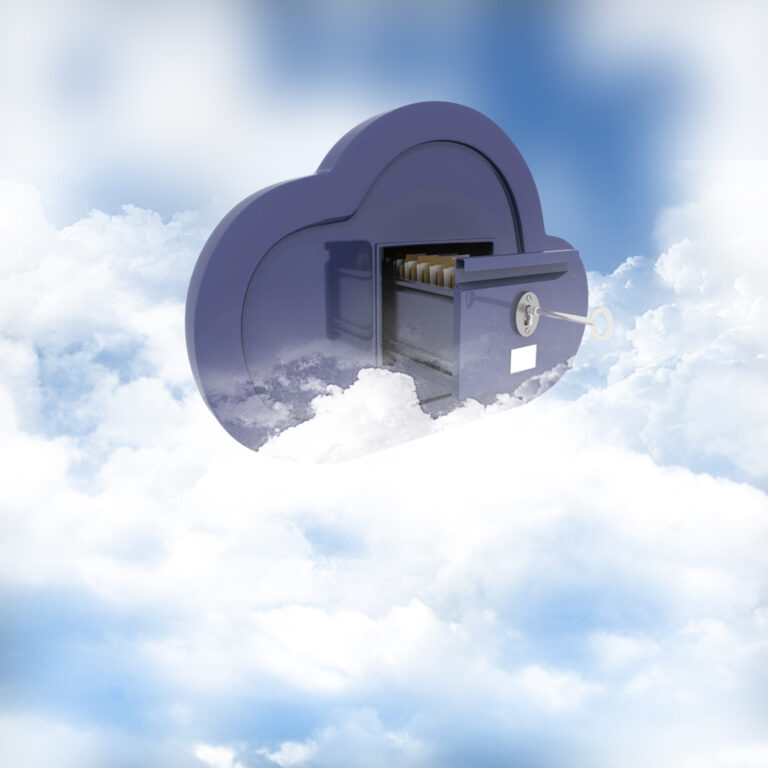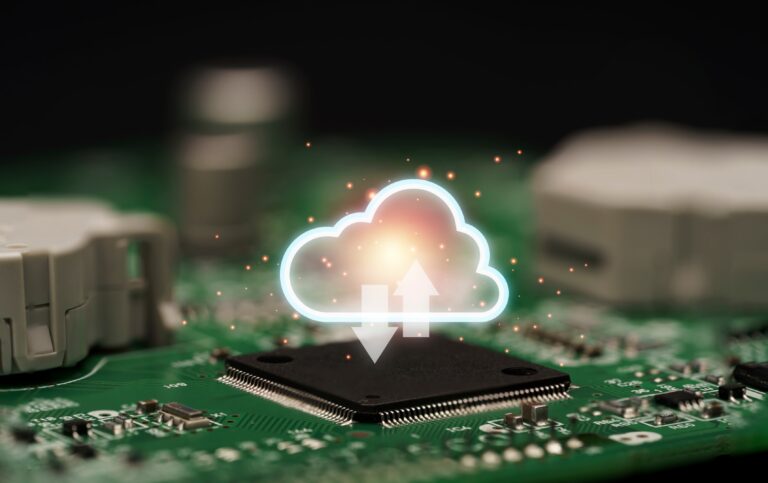More efficiency, lower costs and happy customers are the reasons why the retail industry is moving to cloud. Join us and discover the benefits, applications and considerations of cloud computing in retail including inventory management, supply chain optimisation, customer relationship management and e-commerce.
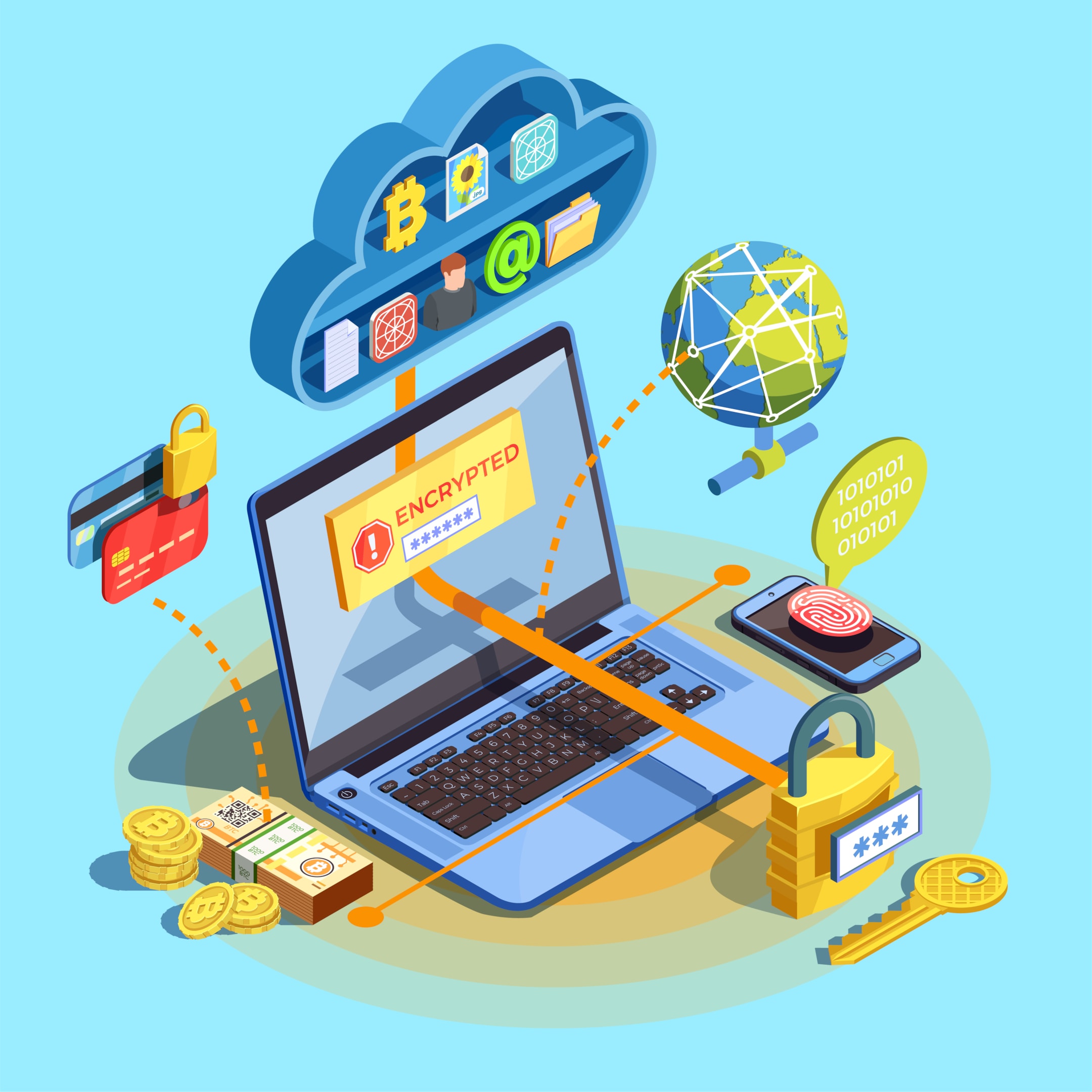
What is Cloud Computing in Retail
Cloud computing is a revolutionary computerised technology that gives you access to many devices and gadgets through the Internet.The cloud technology helps businesses work faster on lower costs as they don’t have to spend heavily on physical hardware or software infrastructure. This allows retailers to focus on their core business and at the same time leverage the flexibility and scalability that cloud service providers offer.
Retail cloud computing uses these specific cloud technologies to drive many efficiencies of retail business and customer experiences as well as growth.
Why are retailers moving to the cloud?
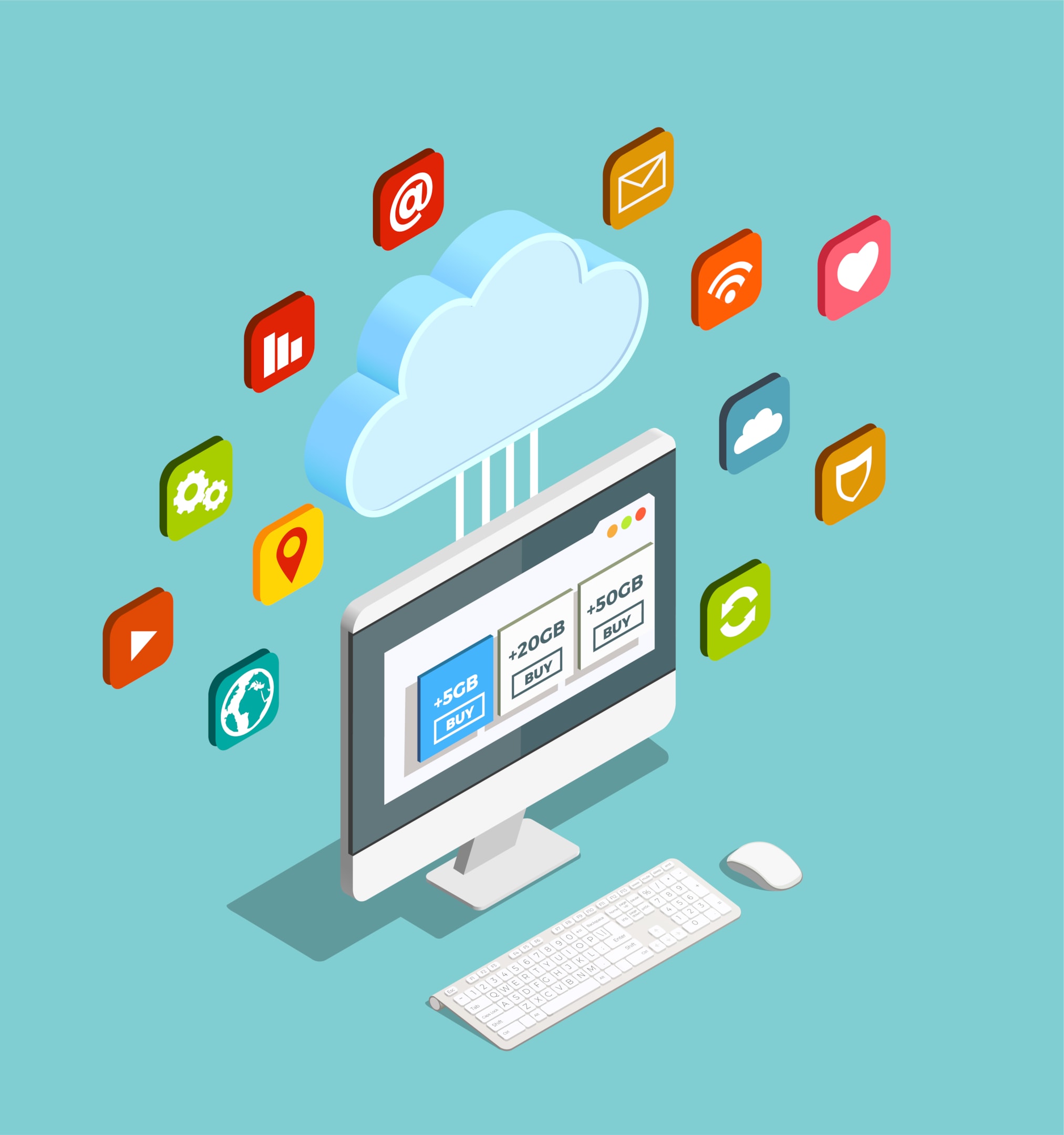
Today’s retail landscape has to respond to changing customer expectations. Cloud adoption makes it possible and affordable providing a range of advantages including:
Scalability
Seasonal peaks and sale surges is what retailers want to get over by any means,even if it means over investing in idle infrastructure. But it is possible to scale resources without sacrificing customer experience and best service. Cloud-based models are self-healing, self-provisioning, and self-optimizing, where more resources get allocated to meet customers’ demands or fewer resources allocated to the retailers. This solution enables retail organizations to bring some level of flexibility in its operation in response to fluctuating demand patterns.
Cost Efficiency
Pay as you go and no large upfront investment makes cloud computing cost effective. Cost savings are further amplified by consolidated systems and economies of scale for retailers.
High Performance and Uptime
Cloud providers do the infrastructure upgrades and maintenance for you, so you get higher performance, less downtime and optimised operations during peak periods.
Security
Robust security measures like encryption, access controls and regular audits protect customer data and ensure industry compliance, minimising the risk of breaches.
Faster Time to Market
Cloud based tools speed up the launch of new products and services, innovation and help retailers respond to market trends better.
Data Driven Decision Making
Analyzing current actionable and real time data to ensure they have the availability of merchandise, resources are allocated appropriately etc. helps retailer with a wide variety of opportunities that include better decisions making at all levels optimized operations and customer such improving their bottom line potential revenue go up!
To summarise, cloud computing is a volumetric and fiscally appealing answer to retailers wanting to be secure, efficient and make their customers smile.
Transforming the Retail Sector With Cloud Computing
Retail industry cloud computing is transforming the way businesses manage their operations, supply chain and customer communication. The technology facilitates supply chain management, inventory control and customer experience enhancements. Here, in this post we are mentioning some of the ways that how cloud computing effects retail sector.
Supply Chain and Inventory Management
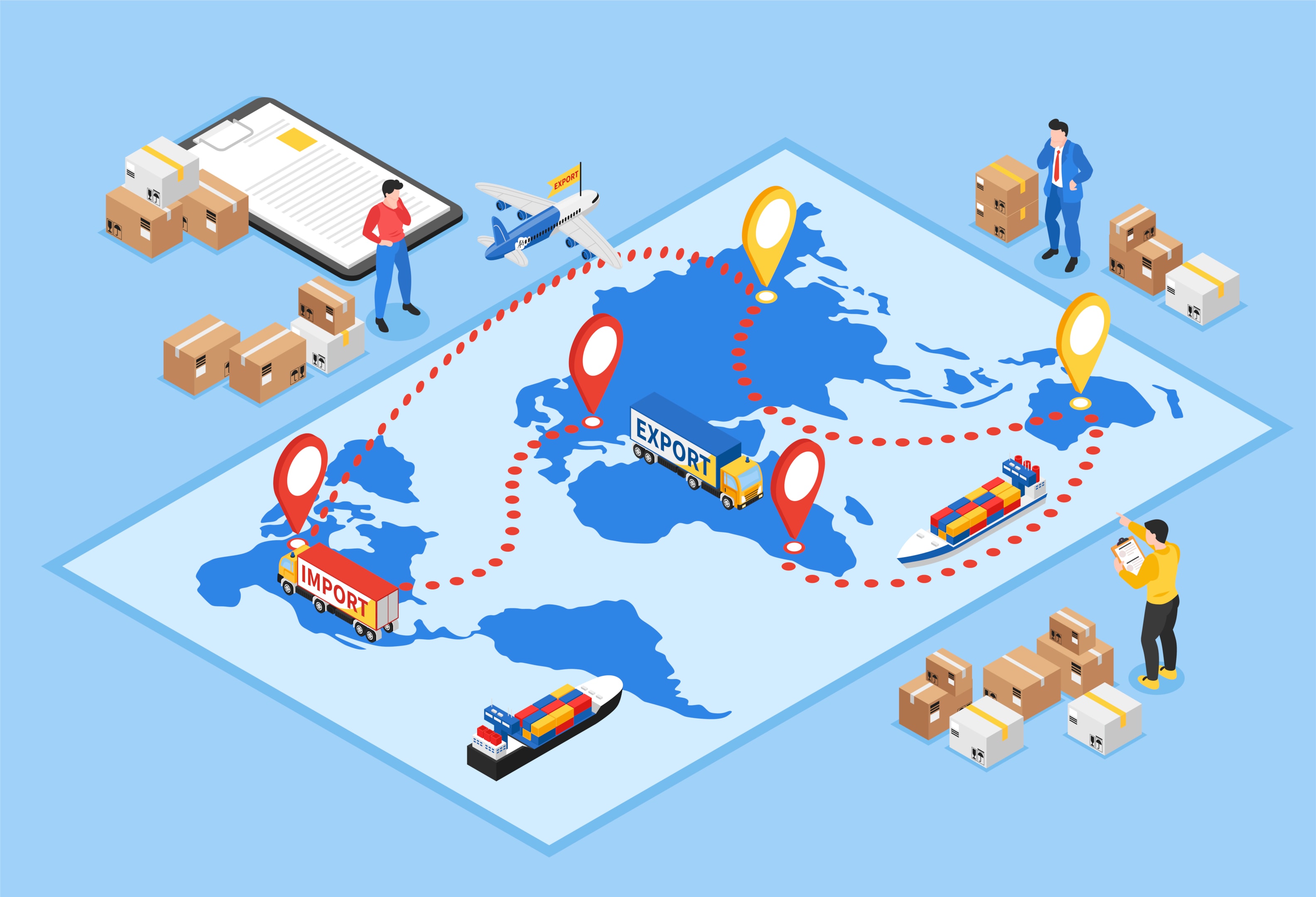
Cloud computing is (how) retailers can move toward efficient inventory management and supply chain optimisation, which is mandated by Indian retail reforms, given the pressure on small margins.
Real Time Inventory Tracking: You can always track your inventory in real time from multiple stores and remote warehouse locations using cloud based systems. This ensures the inventory data remains fresh. Stockouts and Inventory Management Fixes.
Supply chain visibility: Retailers can use vast amounts of data to get visibility into their supply chain. Cloud computing solutions give insight into supply chain operations, reduce supply chain operating costs by identifying bottlenecks and improving logistics.
Demand Forecasting: Advanced analytics and AI capabilities on cloud platforms help predict trends and make data driven decisions. This predictive power optimises inventory, reduces excess stock and avoids costly overstocking, resulting in fewer stockouts.
Customer Relationship Management (CRM) and Personalisation
Personalised experiences and successful customer relationships are the key to loyalty and profit growth. The role of a cloud based CRM system is to streamline the workflow and keep things smooth.
Centralised Customer Data: Personalised shopping experiences and customer satisfaction is what a retailer can get by storing data securely on a centralised cloud platform. They can access real time data and analyse the information to know customer preferences and behaviour better.
Personalised Marketing: Cloud based CRM systems allow retailers to tailor their email campaigns and promotions to individual customers. This is based on customer’s purchase history and feedback and results in higher customer engagement and conversion rates.
Improved Customer Service: Cloud computing makes it easier for smooth integration with several other platforms such as online and in-store, which aims to offer better customer service. These systems can also be used by retailers to interact and assist customers promptly.
POS (Point of Sale) Systems & Payment Processing
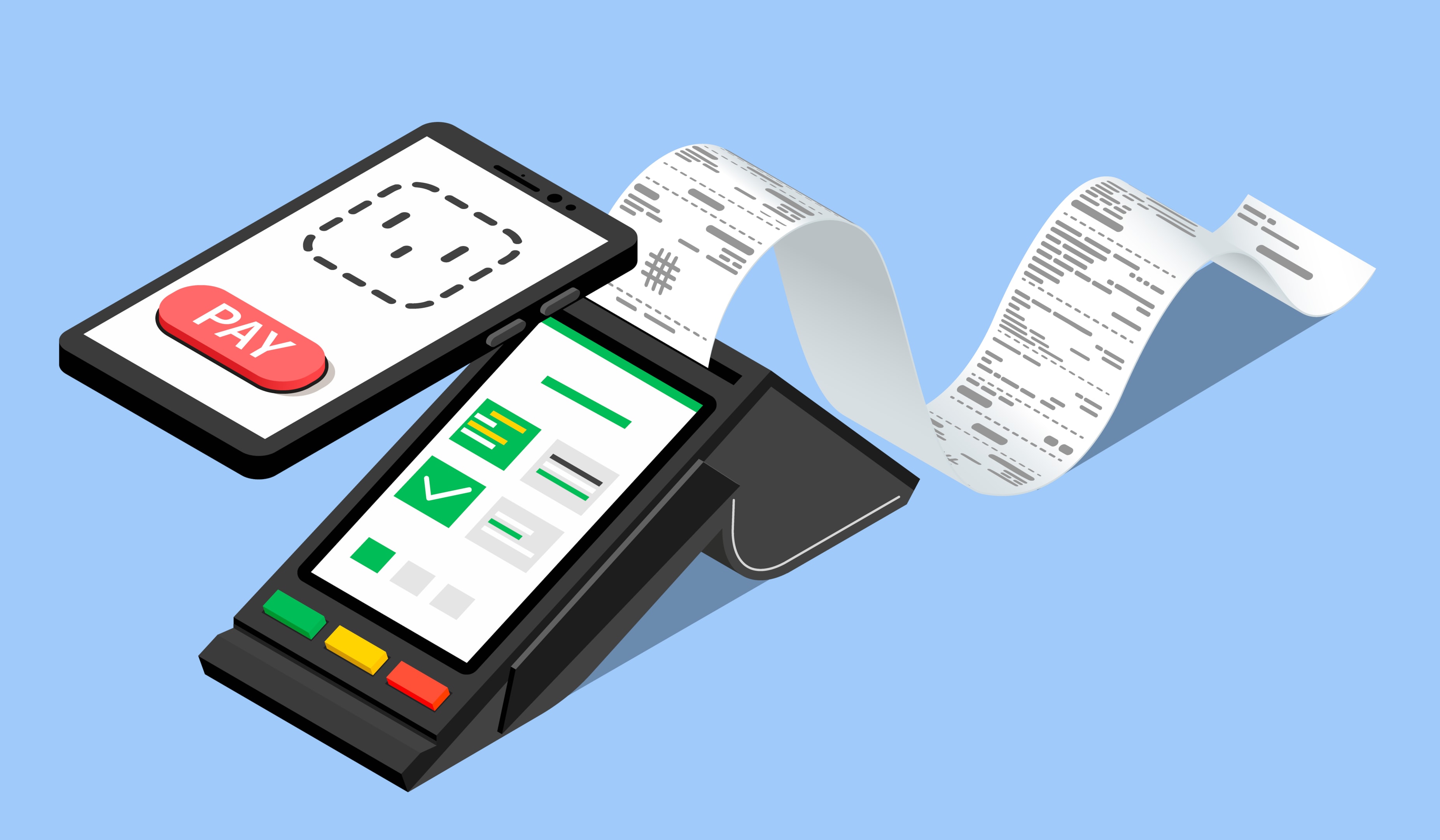
A good cloud based POS system combined with a robust and secure payment processing solution is the foundation of success in retail. They control buying, and hence customer experience.
For example, Cloud Based POS Systems: Using cloud based pos systems will make it easier for the retailers to manage sales data through multiple stores in real time. This is helpful for retailers with multiple locations because it allows scalability and reduced management of physical infrastructure.
Mobile POS — Mobile point-of-sale systems help facilitate a more convenient checkout process by providing solutions such as touchless check out and contact-less shopping. This pleases the modern consumer and is something they now expect.
Advanced encryption and secure storage to ensure data security: Data security being the highest priority of everybody, this type payment processing system secures your network using advanced types of cloud based enclosure. This enables retailers to safeguard proprietary business information and adhere to regulatory protocols.
E-commerce & Omnichannel retail
Cloud technology also supports e-commerce and omnichannel retailing which allows the digitalisation of your retail business.
Ecommerce scalability: Cloud based ecommerce platforms drastically increase the traffic, thus a substantial amount of inserts is needed for every minute transaction and it ensures that customer experience is seamless from both performance aspect. It is this scalability that will enable global competition in the business of retail cloud.
Omnichannel Integration: Retailers can incorporate all channels — online, offline or mobile-into a single system to seamlessly manage business operations when the time is right. The result is a more convenient and increasingly consumer-behaviour-friendly approach to shopping.
Personalisation — Using AI based cloud tools, companies get real time analysis of data which helps understand customer needs and behaviour to provide personalised recommendation for products they may buy. The end consequence is higher customer satisfaction and sales.
Business Data Analytics and Intelligence
Utilise data to the fullest using able set of data analytics and Business Intelligence tools, which is considered a heart-beat for modern day retail store.
This helps retailers to analyse critical data in real time and keep a track on the sales as well as customer behaviour, simultaneously checking how they are performing. A data driven approach helps retailers to take decisions based on. which in turn enhances their operational efficiency and help them become more profitable retail businesses.
Predictive Analytics : Cloud computing provides predictive analytics in retail, which forecast trends and help to optimize merchandising. Using it to analyse data for instance enables cloud retailers to anticipate fluctuations in customer demand, and thus better shape the opportunities which they offer according of market expectations.
Cloud based business intelligence tools: they provide all kind of visualisation, dashboards and reports in a way to focus on areas topped for improvement. These tools can be applied beyond pricing strategies to include optimisation of overall supply chain management.
Protection of Data and Disaster Recovery
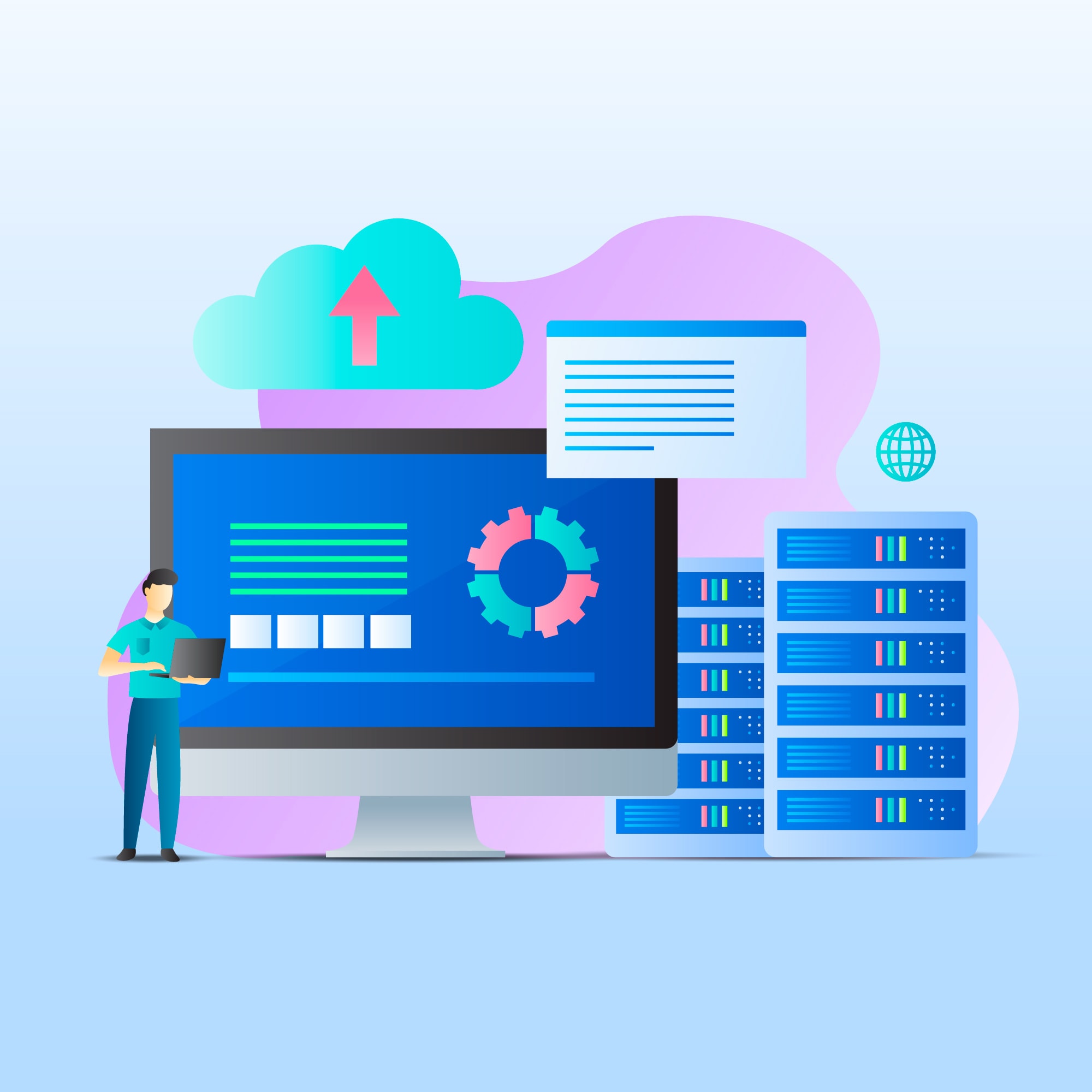
Cloud computing in retail provides disaster recovery solutions for retail businesses and prevents any kind of disruption.
Cloud Based Disaster Recovery: Retailers can implement cloud disaster recovery models to recover quickly from data loss or network infiltration incidents. These cloud based models provides better data security and allows business to store data securely while business continuity during crisis.
Data Protection and Compliance: Cloud computing security solutions protects customer data and confidential business data by using internal firewalls and secure storage. Retailers can reduce data breach risk and meet regulatory compliance by adopting cloud based disaster management and prevent various security threats.
So the path to business process optimisation is through retail cloud computing and cloud based models. Whether you want to reduce operational cost or improve customer experience – cloud in retail industry is a game changer that makes you more efficient and ahead of competition.
Challenges of Cloud Computing in Retail
As retail businesses move to cloud computing environments, there are challenges and considerations to be addressed. Although there are many benefits, retailers need to address security, vendor lockin, integration and performance to fully utilise cloud technology in retail sector.
Security and Data Privacy
Data protection and cybersecurity is top priority for any industry including retail. With increasing cyber threats it’s imperative for retailers to implement robust security and data privacy.
Protect Customer Data: Retailers must ensure cloud service provider offers robust security features including encryption, access controls and regular security audits. These measures protects confidential business data, personally identifiable information (PII) and financial information from unauthorised access and data breaches.
Data Encryption: Encrypting data at rest and in transit is a best practice for data security. Cloud solutions has built in encryption capabilities which allows retailers to store data securely and protect from cyber threats. Thus they are compliant to regulatory requirements.
Disaster Recovery and Cloud Based Disaster Management: In case of data breach or disaster cloud based disaster recovery models can help retailers to recover critical data and business continuity. This is more important to reduce the impact of disruption and customer trust.
Vendor Lockin
One of the biggest risk of cloud adoption is vendor lockin where business becomes heavily dependent on one cloud provider. This limits flexibility and increase cost over time.
Don’t Depend on One Provider: Retailers should choose cloud providers that offers flexible terms and allows easy migration between different cloud services. Implementing hybrid cloud computing or using multiple cloud providers (public cloud, private cloud) can help to mitigate vendor lockin.
Data Portability: Switching provider without significant disruption is another factor retailers should consider when choosing their cloud provider. They should choose cloud provider that supports seamless data migration and compatible with other platform to maintain flexibility and avoid vendor lockin.
Integration and Compatibility
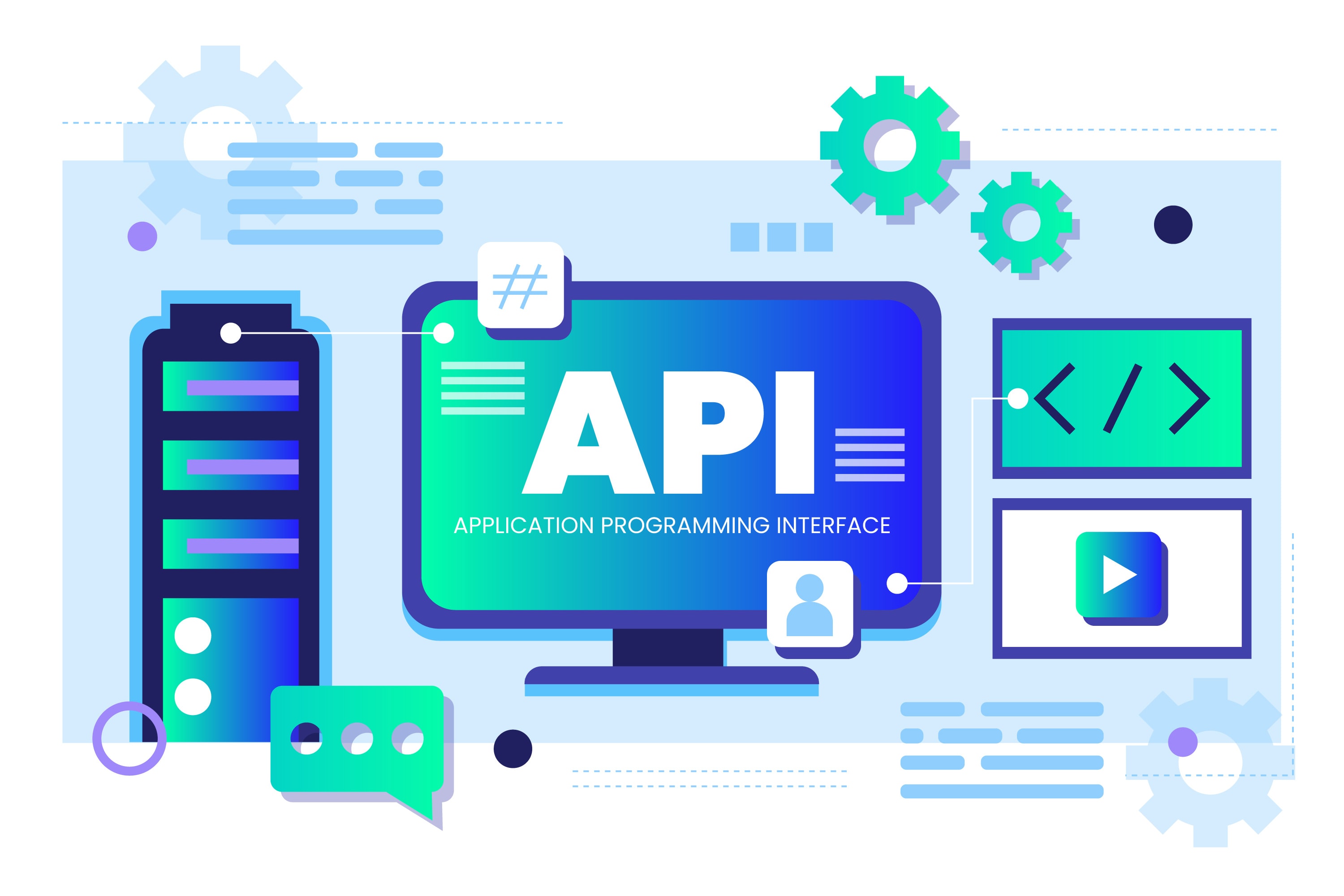
Cloud computing integration with existing systems can be tricky especially for retailers with legacy infrastructure. For smooth transition to cloud, compatibility and seamless integration should be given at two levels:
Integrate with Existing Systems: Retailers must assess how cloud models will integrate with their current systems including point of sale (POS) systems, supply chain management software and customer relationship management (CRM) platforms. Cloud computing solutions should enhance not disrupt existing workflows.
API Integration: APIs (Application Programming Interfaces) is the key to connect cloud services to on-premises systems and enable data flow between different applications. Retailers should use APIs to customise their cloud solutions so new cloud services work with their existing business process without disruption.
Performance and Scalability
To fully utilise cloud computing, retailers must focus on performance and scalability.
Optimise Performance: Cloud provider’s network reliability, data transfer speed and server resources directly impact retail application performance. Retailers should choose provider with high performance infrastructure to reduce network latency and improve user experience.
Scale as You Go: One of the biggest advantage of cloud computing services is the ability to scale resources according to demand. Whether it’s peak season, launching new product or expanding to new market, cloud platform allows retailers to scale up or down as needed to optimise resource and cost.
Cloud Computing in Retail Future
Cloud computing in retail future is looking bright with emerging trends and technologies that will change the industry. By being ahead of the trend retailers can unlock new opportunities for growth.
Emerging Trends and Opportunities
Artificial Intelligence and Machine Learning is part of cloud computing in retail. These technologies enable advanced analytics, personalisation and predictive inventory management so retailers can stay ahead of the competition.
Edge Computing is gaining momentum as the need for real-time data processing grows. By processing data closer to the source such as in-store devices or IoT sensors, retailers can reduce latency and improve response time. This is more beneficial for real-time inventory tracking, event logging and in-store analytics.
Internet of Things (IoT) is changing the retail landscape by connecting devices, collecting data and providing insights on customer behaviour, product performance and supply chain operations. Retailers can use IoT devices to improve customer experiences, optimise operations and streamline supply chain management.
Blockchain: The benefits that blockchain can bring to redefine supply chain transparency in retail can help to combat fraud and secure sensitive information. More and more retailers are considering blockchain as a solution to build trust to their supply chain and make the process much easier through flexibility.
Conclusion
The cloud computing technology has indeed greatly benefited the retail industry with several advantages ranging from operational effectiveness and cost reduction to improved customer satisfaction and flexibility. However, there are disadvantages of this transformation that include security, vendor lock-in, integration complexity, and performance issues. Retailers, however, need to effectively overcome these barriers if they are to maximize on cloud technology.
So as the trends are shifting more in the retail environment, new technologies such as AI, IoT, edge computing, and blockchain have a huge potential for development and adaptation. Embracing cloud computing technologies and being aware of these trends helps retailers maximize their performance, provide unique customer experiences, boost supply chain efficiency and sustain competitiveness in the global retail cloud market.

